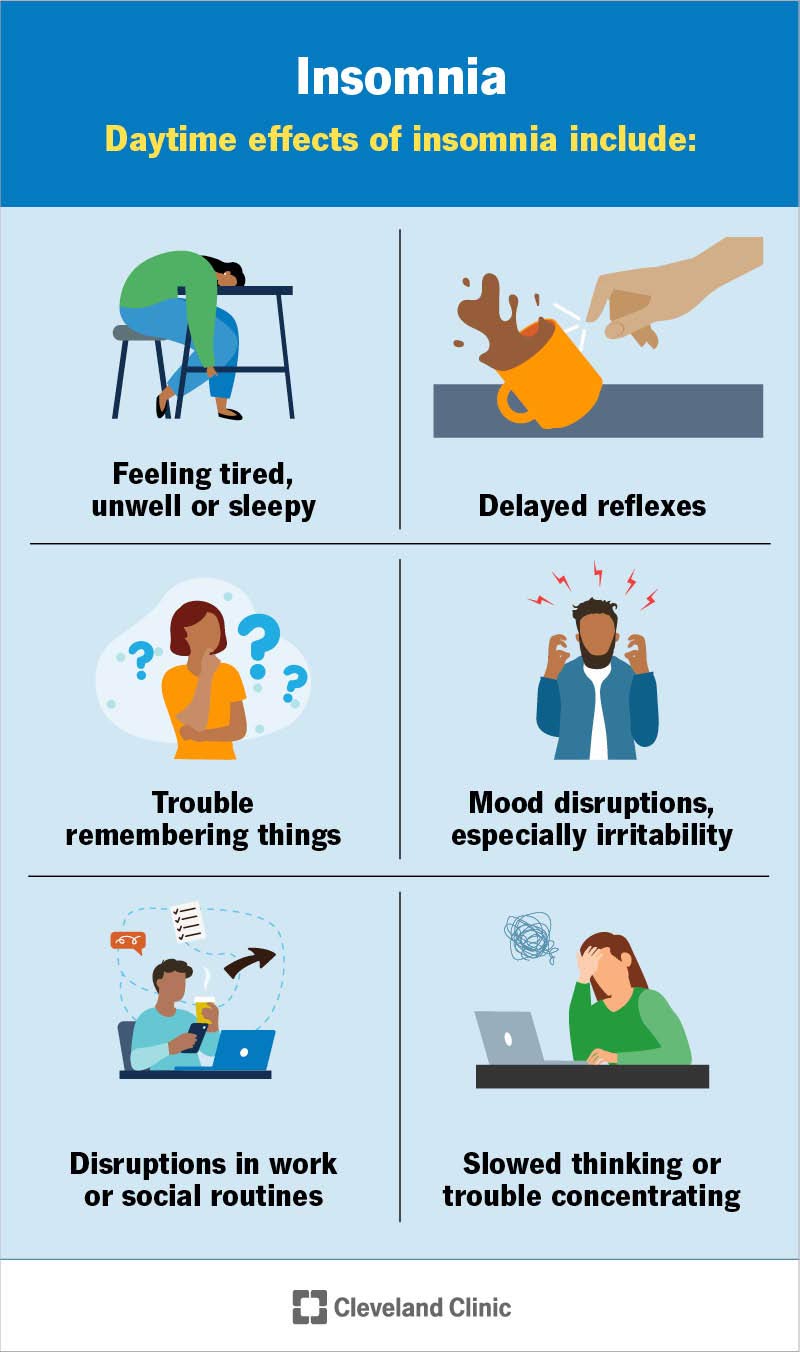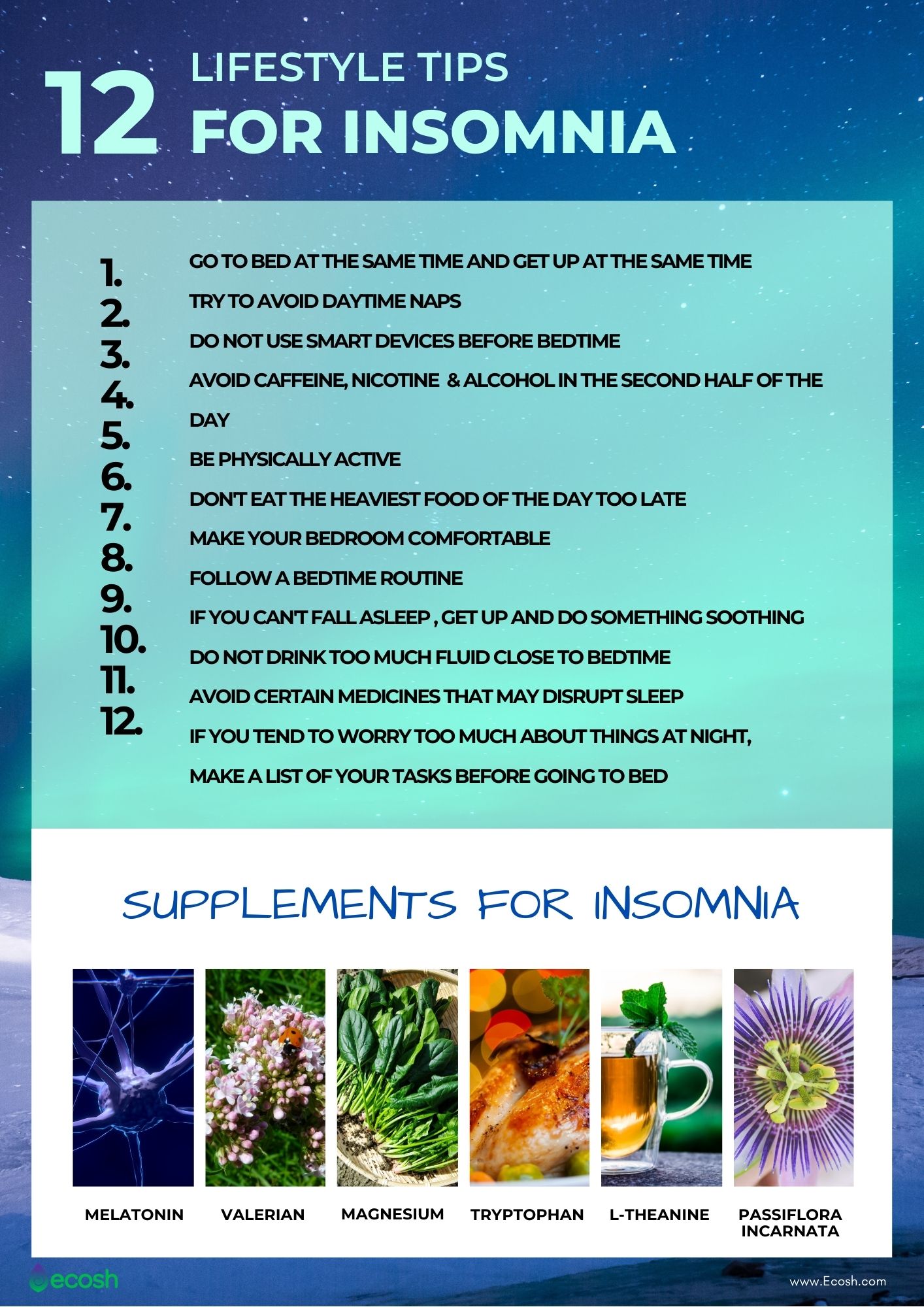Are you tired of lying awake night after night, watching the clock tick away? Struggling with insomnia can drain your energy, cloud your mind, and affect every part of your day.
But what if you could find relief without relying on medications or complicated treatments? You’ll discover simple, natural ways to calm your mind and improve your sleep. These easy steps are designed to fit into your daily routine and help you wake up feeling refreshed.
Keep reading to take control of your nights and finally enjoy the restful sleep you deserve.

Credit: www.resmed.co.in
Causes Of Insomnia
Insomnia affects many people worldwide. It makes falling asleep or staying asleep very hard. Understanding what causes insomnia helps find natural ways to cure it. Causes can be physical, mental, or environmental. Identifying these factors is the first step toward better sleep.
Stress And Anxiety
Stress and anxiety are common causes of insomnia. Worries about work, family, or money keep the mind active at night. The body stays alert, making it difficult to relax. Racing thoughts prevent the brain from switching off. This leads to trouble falling asleep or waking up early.
Poor Sleep Environment
A noisy, bright, or uncomfortable room can disturb sleep. An old mattress or pillow may cause discomfort. Too much light tricks the brain into thinking it is daytime. Noise from traffic or neighbors also interrupts rest. A cool, dark, and quiet room helps the body prepare for sleep.
Lifestyle Habits
Habits like drinking caffeine late or using screens before bed affect sleep. Caffeine is a stimulant that keeps the brain awake. Using phones or computers emits blue light, which delays sleep signals. Irregular sleep schedules confuse the body’s internal clock. Good habits encourage a natural sleep cycle.
Medical Conditions
Some health issues cause insomnia. Pain from arthritis or injury keeps people awake. Breathing problems like sleep apnea disturb sleep cycles. Mental health disorders such as depression and bipolar disorder affect rest. Certain medications may also interfere with sleep patterns.

Credit: my.clevelandclinic.org
Sleep Hygiene Practices
Good sleep hygiene helps improve your natural sleep cycle. It creates habits and an environment that support restful sleep. These practices can reduce insomnia without medicine. Small changes make a big difference in how fast you fall asleep and how deep your sleep is.
Consistent Sleep Schedule
Go to bed and wake up at the same time every day. This trains your body to know when it is time to sleep. Avoid sleeping in late on weekends. A steady schedule helps your internal clock stay regular. It makes falling asleep easier and waking up less tired.
Bedroom Setup
Make your bedroom calm and quiet. Use curtains or blinds to block light. Keep the room cool, around 60 to 67 degrees Fahrenheit. Use comfortable pillows and a good mattress. Remove noise or use earplugs or white noise machines. A tidy room helps your mind relax before sleep.
Limiting Screen Time
Stop using phones, tablets, and computers at least one hour before bed. Screens emit blue light that stops your body from making melatonin. Melatonin is the hormone that helps you fall asleep. Instead, read a book or listen to soft music. This helps your brain slow down and get ready for rest.
Avoiding Stimulants
Avoid caffeine, nicotine, and heavy meals before bedtime. These can keep you awake or cause restless sleep. Drink herbal tea or warm milk instead. Try to finish eating at least two hours before bed. This reduces discomfort and improves sleep quality.
Natural Remedies
Natural remedies offer gentle ways to improve sleep without medicine. They work by calming the mind and body. These methods support healthy sleep habits. They reduce stress and prepare you for rest.
Herbal Teas And Supplements
Herbal teas like chamomile and valerian root help ease the mind. They have natural calming effects. Drinking a warm cup before bed can relax the body. Supplements like melatonin also support sleep cycles. Use these after checking with a doctor.
Aromatherapy Benefits
Scents like lavender and sandalwood promote relaxation. Aromatherapy uses essential oils to soothe the senses. Diffuse oils in your bedroom for a peaceful atmosphere. This method helps reduce anxiety and prepares you to sleep.
Meditation And Relaxation
Meditation calms racing thoughts and lowers stress. Simple breathing exercises improve focus and quiet the mind. Spending a few minutes in relaxation can ease tension. This practice helps the body transition to sleep mode.
Light Exercise
Gentle activities like walking or stretching improve sleep quality. Exercise helps reduce stress and tiredness. Avoid vigorous workouts close to bedtime. Light exercise during the day supports better rest at night.

Credit: ecosh.com
Diet And Nutrition
Diet and nutrition play a key role in improving sleep quality. What you eat affects your body’s ability to relax and fall asleep. Choosing the right foods helps calm your mind and body. Avoiding heavy or spicy meals before bed can prevent discomfort and restlessness. Small changes in diet can lead to better, deeper sleep.
Foods That Promote Sleep
Certain foods contain natural compounds that help you sleep. Foods rich in magnesium, like almonds and spinach, relax muscles and nerves. Tart cherries and kiwi boost melatonin, the hormone that controls sleep. Warm milk and bananas provide tryptophan, which helps produce serotonin. Eating these foods can ease the process of falling asleep.
Timing Of Meals
Eating at the right time supports your sleep cycle. Finish your last meal two to three hours before bedtime. This gives your body time to digest food properly. Heavy meals too close to bedtime can cause indigestion and disrupt sleep. A light snack before bed is okay, but avoid large portions late at night.
Hydration Tips
Staying hydrated is important but balance is key. Drink enough water during the day to avoid thirst at night. Avoid drinking large amounts right before bed to reduce trips to the bathroom. Herbal teas like chamomile or valerian root can help relax you. Limit caffeine and sugary drinks in the afternoon and evening to improve sleep.
Behavioral Techniques
Behavioral techniques offer effective natural ways to treat insomnia. They focus on changing habits and thoughts that disrupt sleep. These methods help the brain relax and prepare for rest. They do not rely on medication. Instead, they teach skills to improve sleep quality over time.
Cognitive Behavioral Therapy For Insomnia
Cognitive Behavioral Therapy for Insomnia (CBT-I) targets negative thoughts about sleep. It helps replace these thoughts with positive, realistic ones. The therapy also includes sleep restriction, which limits time in bed to actual sleep time. This strengthens the connection between bed and sleep. CBT-I guides people to develop healthy sleep routines and reduce worry about sleep.
Progressive Muscle Relaxation
Progressive Muscle Relaxation (PMR) eases physical tension. It involves tightening and then relaxing different muscle groups. This practice reduces stress and calms the body. It signals the brain to prepare for sleep. Doing PMR before bedtime can help fall asleep faster and improve sleep depth.
Breathing Exercises
Breathing exercises slow down the breath and relax the mind. Techniques like deep breathing or 4-7-8 breathing promote calmness. These exercises reduce anxiety and lower heart rate. Regular practice creates a peaceful state that aids sleep onset. Breathing exercises are simple and can be done anytime before bed.
When To Seek Professional Help
Natural methods can help many people with mild insomnia. But some sleep problems need expert care. Knowing when to seek professional help is important. It ensures you get the right treatment early. This can prevent long-term health problems and improve your sleep quality.
Recognizing Chronic Insomnia
Chronic insomnia lasts more than three months. It happens at least three nights a week. You may find it hard to fall asleep or stay asleep. Feeling tired during the day is common. Trouble concentrating and mood changes can occur. If natural methods do not help, see a doctor.
Medical Treatments And Options
Doctors may suggest different treatments for chronic insomnia. Cognitive-behavioral therapy (CBT) is a common option. It helps change thoughts and habits that harm sleep. Sometimes, doctors prescribe medicine for short-term use. They may also check for other health issues causing insomnia. Professional help can guide you to the best solution.
Frequently Asked Questions
What Are The Best Natural Remedies For Insomnia?
Natural remedies like melatonin, valerian root, and chamomile tea improve sleep quality. Regular exercise and a consistent sleep schedule also help cure insomnia naturally.
How Does Diet Affect Insomnia Symptoms?
Eating foods rich in magnesium and tryptophan, like nuts and turkey, promotes relaxation. Avoid caffeine and heavy meals before bedtime to reduce insomnia symptoms.
Can Lifestyle Changes Really Cure Insomnia?
Yes, lifestyle changes such as stress management, limiting screen time, and creating a sleep-friendly environment significantly improve sleep patterns and reduce insomnia.
How Important Is A Sleep Routine For Curing Insomnia?
A consistent sleep routine trains your body to fall asleep naturally. Going to bed and waking up at the same time each day is essential for curing insomnia.
Conclusion
Natural methods can help you sleep better without side effects. Try calming routines, like reading or warm baths, before bed. Avoid screens and caffeine to support restful nights. Exercise regularly but not too close to bedtime. Remember, patience is key; changes take time to work.
Good sleep improves mood, focus, and health. Keep practicing these habits every day for best results. Sweet dreams start with simple, natural steps.
About
Amos Frank is a distinguished figure in the world of Diy sleep, with a decade of expertise creating innovative and sustainable Diy solutions. His professional focus lies in merging traditional sleep with modern manufacturing techniques, fostering sleep that are both practical and environmentally conscious. As the author of diy, Amos Frank into the art and science of sleep-making, inspiring artisans and industry professionals alike.
Education RMIT University
(Melbourne, Australia) Associate Degree in Design (Amos Frank) Focus on sustainable sleep, industry-driven projects, and practical sleep. Gained hands-on experience with traditional and digital manufacturing tools, such as CAD and CNC software.
Nottingham Trent University
(United Kingdom) Bachelor’s in sleepenify.com and sleep makeing (Honors) Specialized in product sleep with a focus on blending creativity with production techniques. Participated in industry projects, working with companies like John Lewis and Vitsoe to gain real-world insights.
Publications and Impact
In diy, Amos Frank his insights on indoor sleep processes, materials, and strategies for efficient production. His writing bridges the gap between artisan knowledge and modern industry needs, making it a must-read for both budding sleep and seasoned professionals.
